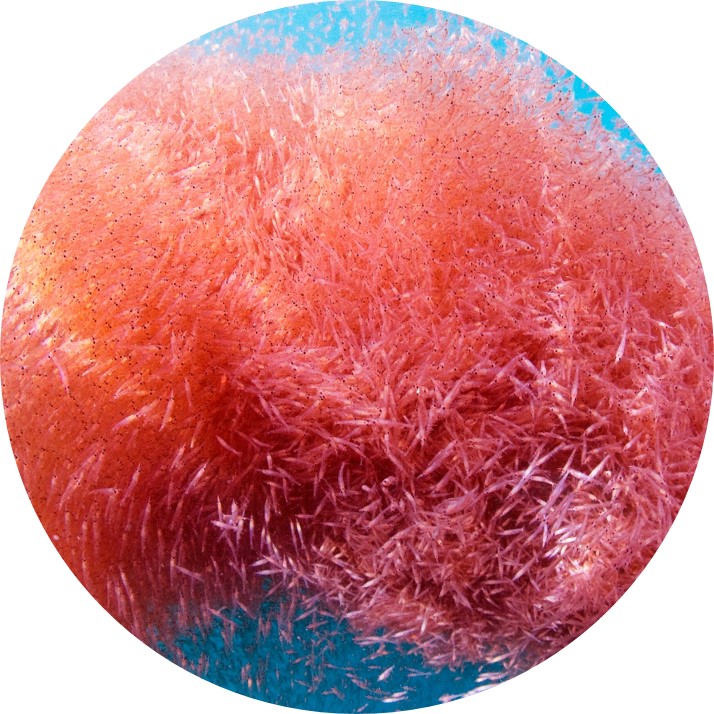The Bellona Foundation, the Norwegian Seafood Federation and seven major players in the fish feed industry have joined forces to improve the climate footprint of Norwegian salmon.The initiative «Råvareløftet» seeks to accelerate the development of new raw materials for fish feed. The aim is to contribute to major cuts in greenhouse gas emissions, whilegenerating employment and furthering the development of the aquaculture industry.
The Bellona Foundation, the Norwegian Seafood Federation and seven major players in the fish feed industry have joined forces to improve the climate footprint of Norwegian salmon. The initiative «Råvareløftet» seeks to accelerate the development of new raw materials for fish feed. The aim is to contribute to major cuts in greenhouse gas emissions, while generating employment and furthering the development of the aquaculture industry.
Feed alone accounts for approximately ¾ of greenhouse gas emissions of Norwegian farmed salmon – when airfreight to distant markets is omitted.
– One of the challenges to growth in the aquaculture industry is the supply of feed and ensuring that it is sustainable, Prime Minister Erna Solberg emphasized during the Norwegian launch of the summary report of The High Level Panel for A Sustainable Ocean Economy-initiative last week.
A broad coalition is now set to address this challenge. The Bellona Foundation, the Norwegian Seafood Federation, Aker Biomarine, BioMar, Calanus, Cargill, Hordafor, Skretting and Mowi have established the collaboration platform «Råvareløftet». The goal is to accelerate the phasing in of new and sustainable raw materials for fish feed. This will enable increased production of seafood, and reduce the overall climate and environmental footprint of the aquaculture industry.
– We believe that Norwegian production of new raw materials for fish feed may be the start of a new green industrial opportunity. It is therefore very exciting to be able to draw on the collective expertise of the industry in finding new and sustainable solutions, says Joakim Hauge, Manager for The Bellona Bio-programme and project responsible for Råvareløftet.
– Råvareløftet is a very exciting partnership that may provide climate benefits, business opportunities and job creation. It would be a win-win situation for Norway if we could replace the large volumes of imported soy with alternative feed raw materials based on Norwegian resources. This spring, as part of economic coronavirus measures, we allocated an additional 20 million NOK to research into the development of fish feed based on Norwegian raw material sources. However, we are also dependent the private sectors’ willingness to invest. I am therefore very pleased with the initiative industry and The Bellona Foundation are showcasing with Råvareløftet, comments Minister of Fisheries and Seafood Odd Emil Ingebrigtsen.
– The Norwegian seafood industry has an important societal mission to produce sustainable and healthy food for a growing world population. We take this seriously and with Råvareløftet we are now taking an important step into an even greener future, says Geir Ove Ystmark, CEO of the Norwegian Seafood Federation. – In Norway, 250,000 new jobs are needed by 2030 if we are to secure the welfare state. We will do our part to ensure that these jobs are created as part of the ongoing sustainability transition in the ocean industries.
Reducing the use of vegetable raw materials such as soy and rapeseed in the feed is an important measure to reduce the climate footprint of farmed salmon. The candidates for the feed ingredients of the future are many.
Råvareløftet will address the potential for harvesting new marine raw materials like mesopelagic fish and species low in the food chain, such as algae, copepods and krill. It will also focus on the cultivation of new feed raw materials, and how future salmon feed may be rely on products derived from insects, yeast and bacteria. Last but not least, Råvareløftet will examine how raw materials for fish feed can be derived from animal and vegetable by-products of other production processes, such as capture-based seafood production.

All partners will contribute expertise, data and resources to Råvareløftet. The Bellona Foundation will assist industry in identifying new solutions and opportunities, and ensure that private sector, politics and the policy landscape are in alignment. In its strategic vision, “Sustainable Aquaculture 2030”, the Bellona Foundation has pointed out the importance of establishing broad collaborations in order to develop new and more sustainable raw materials for fish feed.
– We are pleased with the commitment, ambitions and knowledge the Norwegian Seafood Federation and key players in the feed industry are bringing to the table. Together, we will lay the foundations for the development of novel raw materials, lowering emissions and reducing environmental impact. With Råvareløftet we invite government and state bodies, R&D environments, industry and other societal actors to participate in an initiative that aims to create jobs and economic value, as well as cut greenhouse gas emissions in accordance with the Paris Agreement, says Joakim Hauge of the Bellona Foundation.
– With Råvareløftet we showcase the resolve with which the Norwegian seafood industry contributes to achieving the UN’s Sustainable Development Goals. We are a future-oriented industry that works to ensure that Norway retains its position as the world’s leading and most sustainable ocean nation, emphasizes Ystmark of the Norwegian Seafood Federation.





